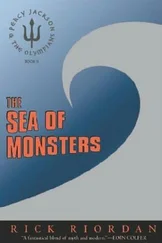There are couples like this on the block now, all sorts of couples, and the boys on the block, who used to have a sense of honor, they don’t do a thing about it. Maybe the neighbors all treat these couples to a look of chastisement on the way past, but that’s the end of it. A disgrace. Rosa Elisabetta herself is no longer the kind of person who lives on this block. Rosa is a specter, a revenant of a Brooklyn past, someone buried under layers of sediment, which is why she has the smell of death on her.
The pancreas, the problem with the pancreas, and the corns, and other complaints. She thinks, I will no longer drink the vin ordinaire, I will only drink the white wine and the Communion wine. Voices in the next room, gathering to speak of such terminologies as grave uncertainty, political instability, intervention of the courts, none of it particularly clear to Rosa. She pays the most attention to the school board and the city council, the social clubs, and she only pays attention to these because in the old days she paid attention to them when her father and her father’s friends had an interest in politics. They knew how to look after what was theirs. She would give out leaflets over by the subway. Now she’s not even sure who is running for the school board, if there is even a school board candidate.
Like trying to evacuate pieces of glass, like glass or maybe pieces of your brain coming out of your posterior, bits of your insides, bits of your organs, like your pancreas, for example, or the gallbladder. Black bile, green bile, stones. All the humors. Such a stink. She moans, while the voices debate about concession and recount, and so Rosa resolves not to give in herself and reaches into the cabinet underneath the sink, if she can just reach from where she is, where she keeps a special something. At the exertion, another molten river floods from her. Usually after an hour or so she feels better. When it is clearing itself up, she doesn’t really need the bottle, the quart bottle purchased from the criminals at the bodega. Doesn’t like to patronize them, because they do not ask after her family. She’s sure that they are selling illegal drugs to schoolchildren, but nonetheless, there’s the fact of convenience. The mildew smell is nauseating, too. When the Polish lady comes, she will have to tell her about the smell. Rosa Elisabetta doesn’t know if she’ll be able to keep down the malt liquor. Sometimes she spits it up. Sometimes she has to spit up some of the malt liquor in order to calm her stomach. Into the sink, sometimes into the tub. It’s like in the miniseries about the Roman emperors. One fellow, he had the sour stomach, and then his grandmother fed him. Rosa unscrews the cap on the malt liquor, a feverish chill overtaking her; she can hear the chatter from the next room, beautiful and serene now that she’s unscrewing the cap of the malt liquor. The voices sound like birds. The flocks of Prospect Park in spring, like that rooster that was crowing in the park last summer, someone left a rooster in the park, and it was doing its job in the mornings. She decides to risk the malt liquor. Everything is nauseating on a morning like this, the old tile floor in the bathroom of the brownstone, the mildew, the stink, the interracial couples of the neighborhood, the diaspora of her contemporaries to Long Island and to Westchester, to the state of Florida. She drinks deep, gags, drinks more, gags. Drinks more. Rosa Elisabetta, the last person in this neighborhood to have officiated in stickball and to have carried lasagna next door when people moved in, the last person to have drunk red wine out of jugs at the block party, where the priest came by and made jokes about baseball. They all drank wine, her family drank wine, even as a girl she drank wine, her friends had wine on Sundays at church, and no one worried about whether the priest was molesting anyone.
Rosa Elisabetta won’t allow herself to be pushed out of her own neighborhood, where she raised up a daughter by herself and grew old. The neighborhood where she learned the one thing she learned, that a daughter was what God had promised. The perfection of daughters, daughters running in the park, daughters playing on the swings, daughters at the zoo, daughters smelling hyacinth in the botanical garden, smelling lilies. She made a dress for her daughter out of gingham, put up her daughter’s hair in pigtails, took her over to the neighbors to ask if her daughter was not the prettiest girl on the block. She raised a daughter and worked in the principal’s office of the elementary school, and no one can take her parking space away from her.
Replenishment of fluids. Vital to her condition. She knows what a flat cola will do for an elementary school child in the throes of a stomach complaint. She knows how to stop a nosebleed and how to apply a tourniquet. She will stay here until she has replenished. The malt liquor is half empty, and she is feeling as though she might be up and around before noontime after all. She is starting to feel like a matriarch, like a God-fearing Catholic. So she reaches back and toggles the lever, to flush away the bits of her that she has ripped loose, and the toilet gurgles darkly after clearing only a portion of the evidence. “Oh, don’t tell me. Don’t you dare tell me.” Yet while this anxiety about plumbing — like anxiety about all home maintenance issues, and anxiety about medical issues, and anxiety about automotive issues, and anxiety about political issues — weighs heavily on Rosa Elisabetta, a fresh bout of muscular contractions overtakes her, and she can do nothing until its temblors have coursed through her. Then, coated with sweat and smelling like malt liquor, she reaches over, runs the tap, as if the sound of the tap will help, maybe the sound of the tap, instead of voices talking about the state of Florida, and she gets a handful of water, spills it across her face. It splatters the neckline of her nightgown and her sweater. She hates the color of her towels. She avails herself further of the malt liquor. She will finish the bottle.
Rosa is going to have to get herself well enough to search out the plunger in the kitchen, and then she is going to have to plunge the john, because she doesn’t want to make it anyone’s business, though she can barely make it up the block to the bodega on a good day. She only does it to purchase supplies when her daughter is at work, so no one will see. Otherwise, she has everything delivered. She won’t have the plumber in here because of the blood, because she knows there’s blood. She won’t have it. She heaves, nothing comes up, and then the last of the malt liquor goes down. The first sip tastes like ambrosia, the last like formaldehyde.
She drops the empty into the claw-footed bathtub. It rolls back and forth without shattering. The trash can that she purchased at the discount store on Atlantic is over by the door. She doesn’t like going there, Atlantic Center. It’s full of the wrong kind of people. She went that one time because there were bargains. She reaches for a second bottle under the sink, just to be sure of the existence of the second bottle, and she gets a finger around the top of it, but then the quart bottle topples and rolls back into the sink cabinet, upending a toilet brush and a can of cleanser. She takes the name of her Heavenly Father in vain. She must have lost five pounds now, maybe more, and the room stinks, and the toilet is all clogged, and all she asks for is a little bit of relief.
The voices clamoring about Palm Beach County are like the souls clamoring to get into purgatory, or like the bees making a nest in their honeycomb. In the countryside. In an Italian village. In Siena. Il mio caro paese. She can see it now, her father and her father’s father. Amateur magicians. In the old country. She knows all the stories. She can see the cypresses, farmers bent along rows of grapevines. Olive groves. She pushes up the lid of the toilet tank and plunges her hand into the tank, its rusty H 2O, and the lid, which is so heavy, slips sideways, hits the lip of the claw-footed bathtub, crashes to the floor, where it actually breaks clean in two. Rosa Elisabetta castigates the toilet lid with a string of ornamental curses. Outside the door, the cat gets traction and skitters off to the farthest closet he can find. Upstairs, too, from the racket she’s causing she can hear that her daughter has waked, the planks of the hardwood giving with her daughter’s ungraceful footfalls. Where is that pint bottle? She knows she put the pint bottle in the toilet tank, because her daughter was haranguing her. Her daughter was in the closet, throwing things out, mementos, items that Rosa needed, and that was when someone must have taken away those other items in the closet and perhaps also the one in the toilet tank. Someone has thrown them out. Her daughter is always straightening. She comes and she straightens up. And her daughter hired the Polish woman who also comes, and they straighten up together, but Rosa Elisabetta knew what that was all about, she knew what was getting straightened up.
Читать дальше












